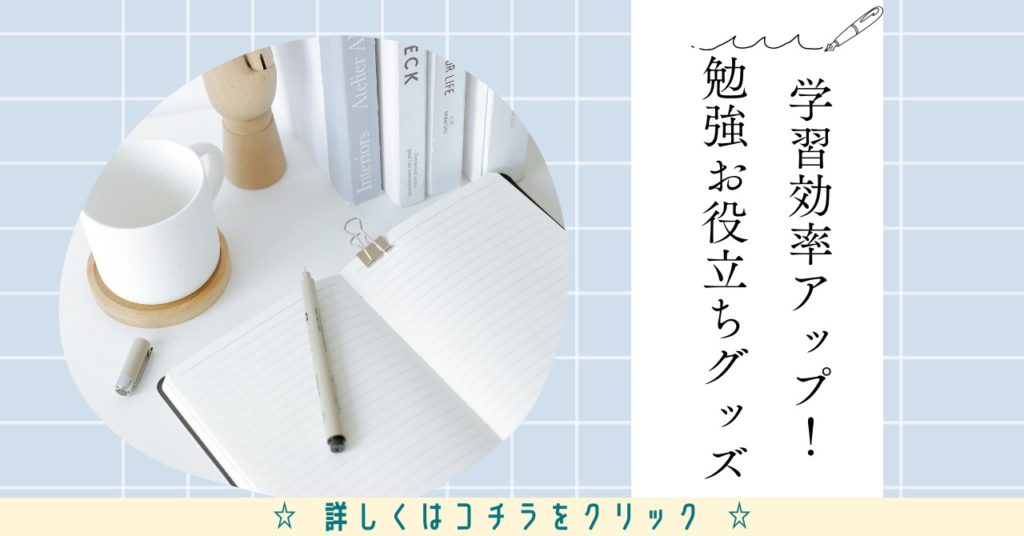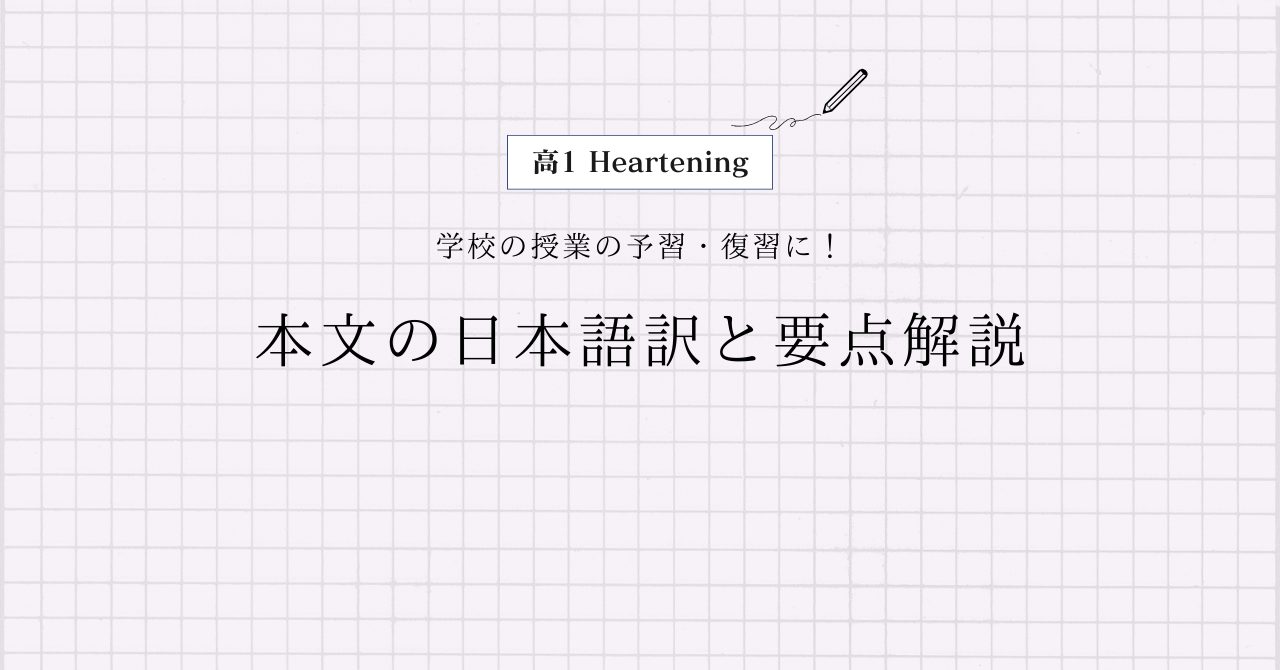桐原書店 高1Heartening Lesson1 Section2の本文の日本語訳と重要箇所の解説です。
Lesson1-1, 1-3, 1-4の解説はこちらからご覧ください。
>高1Heartening Lesson1 Section1 本文和訳
>高1Heartening Lesson1 Section3 本文和訳
>高1Heartening Lesson1 Section4 本文和訳
- Heartening Lesson1 Section2 本文と日本語訳
- Heartening Lesson1 Section2 重要事項の解説
- Hachimura was a beginner, so the coach and his teammates taught him from zero.
- He had outstanding physical abilities, but did not just rely on them.
- He practiced hard every day.
- At last he became the team’s leader.
- As the team’s leader, Hachimura wanted the teammates to do their best.
- He sometimes became upset when a teammate missed a basket.
- “You can’t even make a simple shot!” he said.
- His attitude hurt other members’ feelings.
- The coach understood Hachimura and said to him,
- “I know you want to win. But basketball is a team sport. You are not playing alone.”
- His words changed Hachimura.
- The mood of the team got better, and they were able to win second place in the national competition.
- Heartening Lesson1 Section2 まとめ
Heartening Lesson1 Section2 本文と日本語訳
Hachimura was a beginner, so the coach and his teammates taught him from zero.
「八村は初心者だったので、コーチとチームメイトは彼を0から教えました。」
He had outstanding physical abilities, but did not just rely on them.
「彼は突出した身体能力を持っていましたが、それに頼るだけではありませんでした。」
He practiced hard every day.
「彼は毎日一生懸命に練習しました。」
At last he became the team’s leader.
「ついに、彼はチームのリーダーになりました。」
As the team’s leader, Hachimura wanted the teammates to do their best.
「チームのリーダーとして、八村はチームメイトにベストを尽くしてほしいと思いました。」
He sometimes became upset when a teammate missed a basket.
「チームメイトがシュートを外すと、彼は時々腹を立てました。」
“You can’t even make a simple shot!” he said.
「『単純なシュートもできないのか!』と彼は言いました。」
His attitude hurt other members’ feelings.
「彼の態度は他のメンバーの気持ちを傷つけました。」
The coach understood Hachimura and said to him,
「コーチは八村のことを理解して、彼に言いました。」
“I know you want to win. But basketball is a team sport. You are not playing alone.”
『君が勝ちたいのは分かる。でもバスケットボールはチームスポーツだ。君は1人でプレーしていないんだよ。』
His words changed Hachimura.
「彼の言葉は八村を変えました。」
The mood of the team got better, and they were able to win second place in the national competition.
「チームの雰囲気はより良くなり、彼らは全国大会で準優勝することができました。」

Heartening Lesson1 Section2 重要事項の解説
Hachimura was a beginner, so the coach and his teammates taught him from zero.
“beginner”は「初心者」、“coach”は「コーチ、指導者」、“zero”は「ゼロ」という名詞ですね。
“so”は「~だから」という接続詞になります。
He had outstanding physical abilities, but did not just rely on them.
“outstanding”は「目立った、突出した」、“physical”は「身体的な、肉体の」という形容詞で、“ability”は「能力」という名詞です。
“just”は「ただ~だけ、ちょうど」といった副詞で、“rely on~”は「~に頼る」という重要表現になります。
“them”は“outstanding physical abilities”を指していますね。
He practiced hard every day.
“hard”は「一生懸命に、熱心に」という副詞ですね。
At last he became the team’s leader.
“at last”は「最後に、ついに」といった副詞表現です。
“became”は“become(になる)”の過去形で、“leader”は「指導者、リーダー」という名詞ですね。
また、名詞に‘sを付けると「~の」という所有を表します。
直前の名詞が複数形のときは” teachers‘ “のようにアポストロフィーだけを最後に付けます。
As the team’s leader, Hachimura wanted the teammates to do their best.
“as”は「~として」という前置詞です。
“want 人 to 動詞の原形”で「人に~してほしい」という重要表現です!
“do one’s best”は「ベストを尽くす、頑張る」という意味ですね。
He sometimes became upset when a teammate missed a basket.
“sometimes”は「時々」という副詞ですね。
“upset”は「腹を立てて、動揺して」という形容詞で、“miss”は「を失敗する、を逃す、を恋しく思う」といった動詞になります。
また、「接続詞when」も使われていてますね。
“miss a basket”は「シュートを外す」くらいでOKです。
“You can’t even make a simple shot!” he said.
“even”は「~でさえ」といった強調を表す副詞です。
“make a shot”は「シュートする」といった意味で、“simple”は「単純な、シンプルな」という形容詞になります。
His attitude hurt other members’ feelings.
“attitude”は「態度、姿勢」、“feeling”は「気持ち、感情」という名詞ですね。
“other”は「他の」という形容詞で、“hurt”は「を傷つける」という動詞です。過去形も過去分詞形も“hurt”です。
The coach understood Hachimura and said to him,
“understood”は“understand(を理解する)”の過去形です。
“I know you want to win. But basketball is a team sport. You are not playing alone.”
“know”の後ろには「接続詞that」が省略されています。
“win”は「勝つ」という動詞ですね。
“alone”は「1人で」という副詞になります。
最後の文は「現在進行形」が使われていますね。
His words changed Hachimura.
“word”は「単語、言葉」という名詞で、“change”は「を変える」という動詞ですね。
The mood of the team got better, and they were able to win second place in the national competition.
“mood”は「雰囲気、気分」という名詞で、“get better”は「良くなる」という表現になります。
“of”は前置詞で,”A of B”の形で「BのA」というように後ろから前に訳します。
“they”はバスケ部のことを指していて、“be able to 動詞の原形”は「~することができる」という“can”と同じ意味の重要表現です。
“second place”は「準優勝」、“national competition”は「全国大会」という意味になります。
Heartening Lesson1 Section2 まとめ
以上がHeartening Lesson1 Section2の日本語訳となります。
>高1Heartening Lesson1 Section1 本文和訳
>高1Heartening Lesson1 Section3 本文和訳
>高1Heartening Lesson1 Section4 本文和訳
何か分からない点や他に解説してほしい点があれば,お気軽にコメントしてください!


コメント